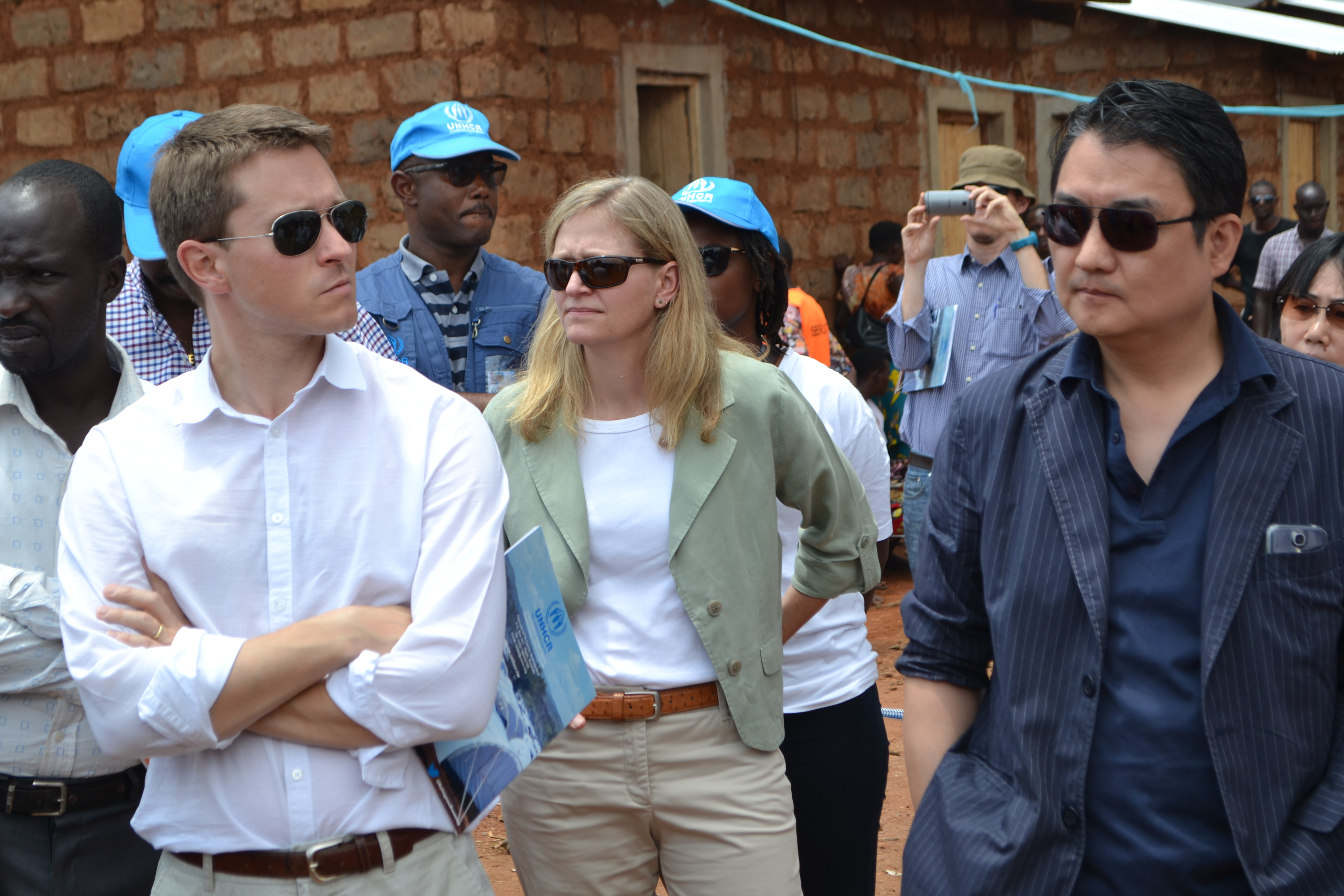Government, UNHCR, Rwandan and international businesses, UN and NGO heads and diplomats affirm plan for inclusion of refugees in Rwanda’s national development and domestication of the sustainable development goals
Economic Inclusion of Refugees in Rwanda is a Joint Strategy between the Ministry of Disaster Management and Refugee Affairs and the United Nations High Commissioner for Refugees for furthering economic development in host communities through refugee self-reliance (2016-2020)
Kigali, 26 September 2016 – Today at the Kigali Marriott, the Ministry of Disaster Management and Refugee Affairs (MIDIMAR) and the UN Refugee Agency (UNHCR) held a conference on solutions and socio-economic inclusion of refugees in Rwanda’s development planning, together with representatives of several ministries including Ministries of Foreign Affairs, Commerce and Local Government; Ambassadors of Belgium and Japan; development cooperation institutions of the United States, Germany, Belgium, Sweden, and GIZ; Rwandan and international businesses including MTN and Equity Bank which is UNHCR’s partner in its transition from in-kind distribution to cash-based interventions; social enterprises such as Inkomoko, Inyenyeri and Indego Africa; and UN agencies including Resident Coordinator’s Office, WFP, UNICEF and NGOs such as Give Directly and Spark. Among the outcomes of the stakeholder consultations included an affirmation that refugees can contribute positively to Rwanda’s economy and plans for next steps to boost their self-reliance through the launching of the MIDIMAR-UNHCR Strategy for refugee livelihoods. “Refugees have the potential to make a significant contribution to Rwanda’s development, if we empower them through the right tools—and that is why we have launched the joint livelihoods strategy for socio-economic inclusion with UNHCR today,” said Minister Seraphine Mukantabana during her opening remarks.
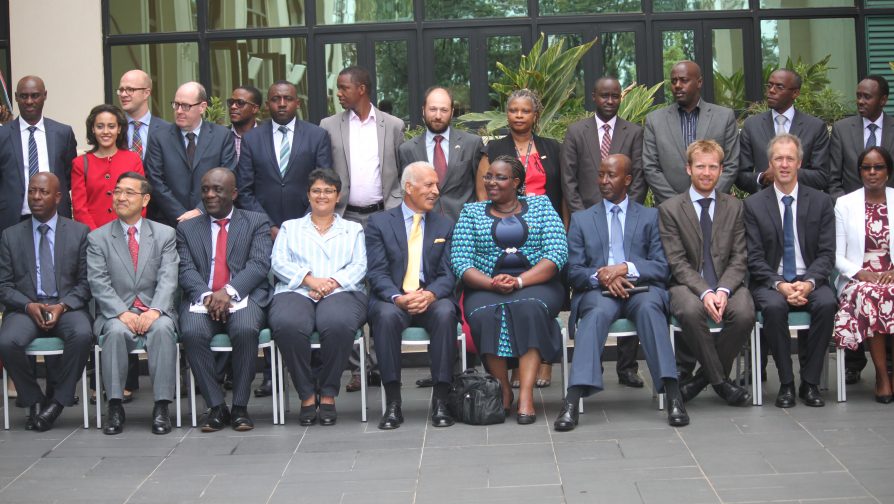
Conference on solutions and socio-economic inclusion of refugees in Rwanda’s development planning: Participants in a group photo. /Photo: Eugene Sibomana – UNHCR
Rwanda was invited to participate in the Leaders’ Summit on Refugees convened by U.S. President Barack Obama last week on 20 September, where—as one of only nine African states invited—it made significant commitments to refugee protection and solutions including integration for education and health, improved documentation and self-reliance. Rwanda has already demonstrated a very innovative approach to refugee policy, by taking steps to progressively integrate refugees into the national systems for education and health—already, many refugees are attending national schools alongside host community students. But in Rwanda’s five refugee camps hosting Congolese, UNHCR must operate parallel systems in all sectors—running schools, health facilities, and distribution of in-kind assistance, in addition to its work in protection, because refugees continue to depend on humanitarian assistance. Saber Azam, UNHCR Representative in Rwanda, stated that “Our aim today, by launching this joint strategy with the Government with all external stakeholders, is to propose concrete solutions that will make refugees a meaningful part of Rwanda’s path to achieving the SDGs. My plea to those amongst you from the development community is to include refugees and their host communities in your development planning; and to those of you in the private sector, my plea to you is to think of refugees as potential employees, consumers, and partners.”
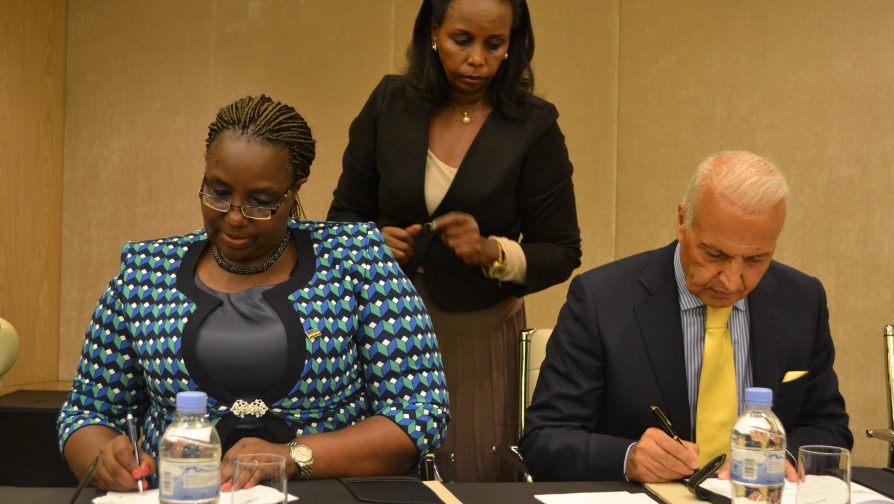
Minister of MIDIMAR Seraphine Mukantabana and UNHCR Representative sign a Memorandum of Understanding between the two organisations for the Economic Inclusion of Refugees in Rwanda/ Photo: Eugene Sibomana – UNHCR
Rwanda has historically demonstrated tremendous openness to refugees and is an example in refugee protection—in part because most Rwandans themselves know from experience what it feels like to be forcibly displaced. But, as global leaders recognized at the Obama summit and also at the UN General Assembly Summit for Refugees and Migrants also held last week, countries that welcome refugees and support them to thrive and work and be self-reliant, also can harvest substantial benefits in the long-term. Today’s conference included a panel discussion featuring the Permanent Secretary of MIDIMAR; Ambassador of Belgium; Stephen Ruzibiza, deputy chairman of the Private Sector Foundation; and UWITONZE Jean Louis from the Ministry of Commerce. They concluded that while humanitarian assistance is required at the outset of a refugee emergency, a forward-looking approach which is underpinned by development thinking is particularly important given that no refugee situation is short-lived today; on average, most refugees remain refugees for 17 years. And dependence on humanitarian assistance for 17 years is not only undignified, but it is also unsustainable and contrary to the principles of international protection and durable solutions for refugees which underlie the 1951 Convention on Refugees.
There are already many examples of refugees who have made significant contributions globally, and also locally. Albert Einstein, the greatest scientist of the 20th century, was a refugee. Steve Jobs, founder of one of the world’s largest companies, Apple, and of the iPhone, was born to refugee parents. Alek Wek, an international model whose image has graced the covers of the most famous fashion magazines and runways, is a refugee. In Rwanda, Gilbert Ngongo, a Congolese refugee decided that he wanted to be self-reliant rather than depend on humanitarian assistance. And because Rwanda generously allows freedom to work and move for refugees, Gilbert was able to start a business. He opened a fish importing company, and he is the reason that today, sushi is served in restaurants in Kigali. And Gilbert is just one example of the kind of contribution refugees can make to the local economy, community, society, and country. By launching the joint strategy on livelihoods today, MIDIMAR and UNHCR hope that Gilbert will become not an exception, but the norm in which refugees in Rwanda are graduated out of assistance, included in development planning and empowered to become self-reliant and contribute to the growth of the country.
UNHCR in Rwanda media contacts:
Martina Pomeroy, External Relations Officer | pomeroy@unhcr.org | +250 (0) 78-830-2769
Eugene Sibomana, Communications Associate | sibomane@unhcr.org | +250 (0) 78-888-4713
See also
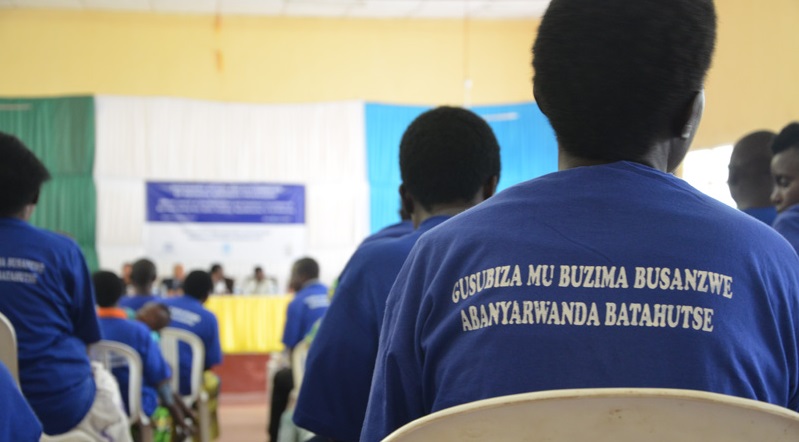
UNHCR, African host countries agree on final steps to resolve Rwandan refugee situation
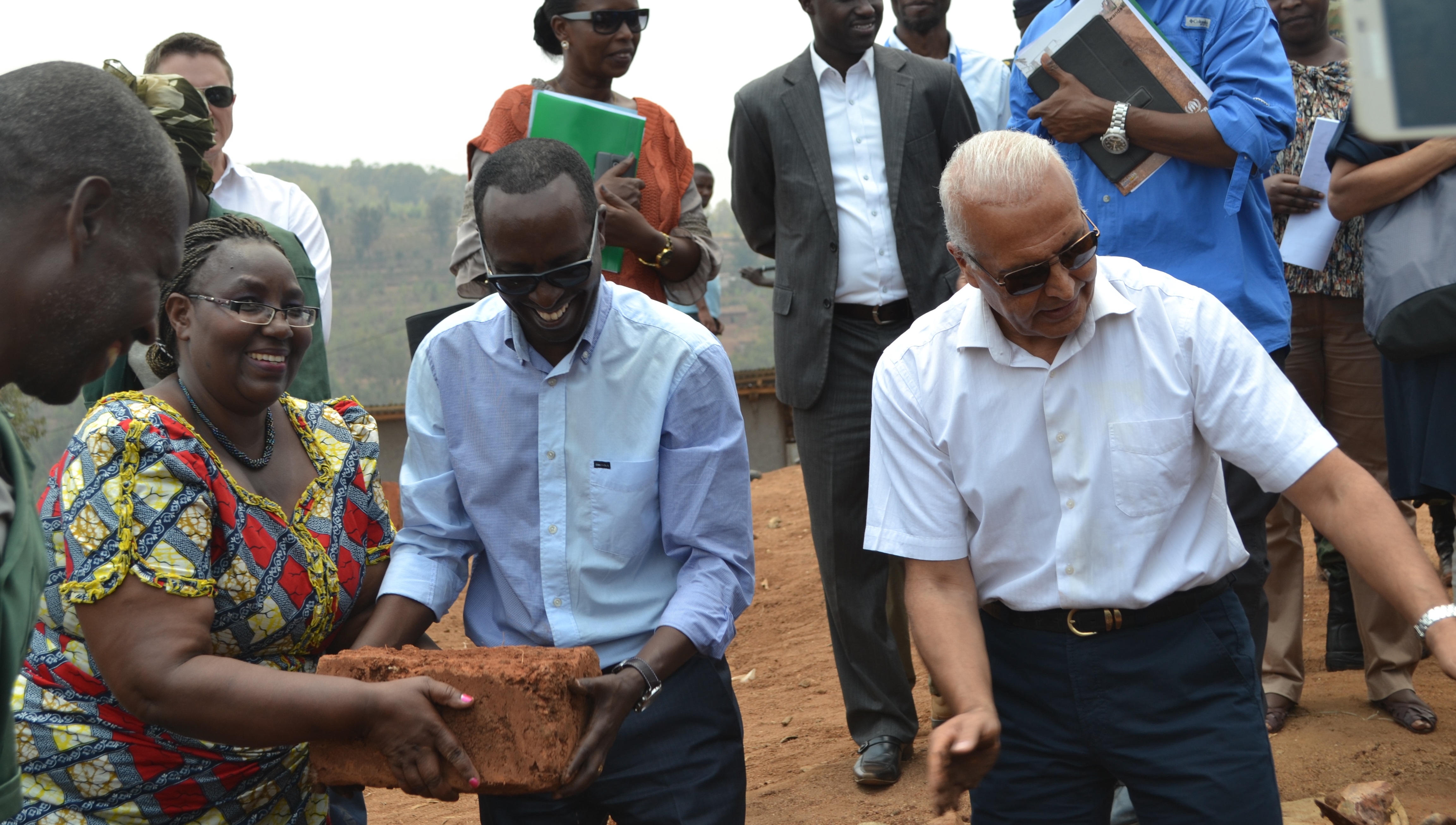
Ambassadors in Rwanda visit Mugombwa Refugee Camp following Rwanda’s Commitments at the Leaders’ Summit on Refugees convened by United States President Obama
